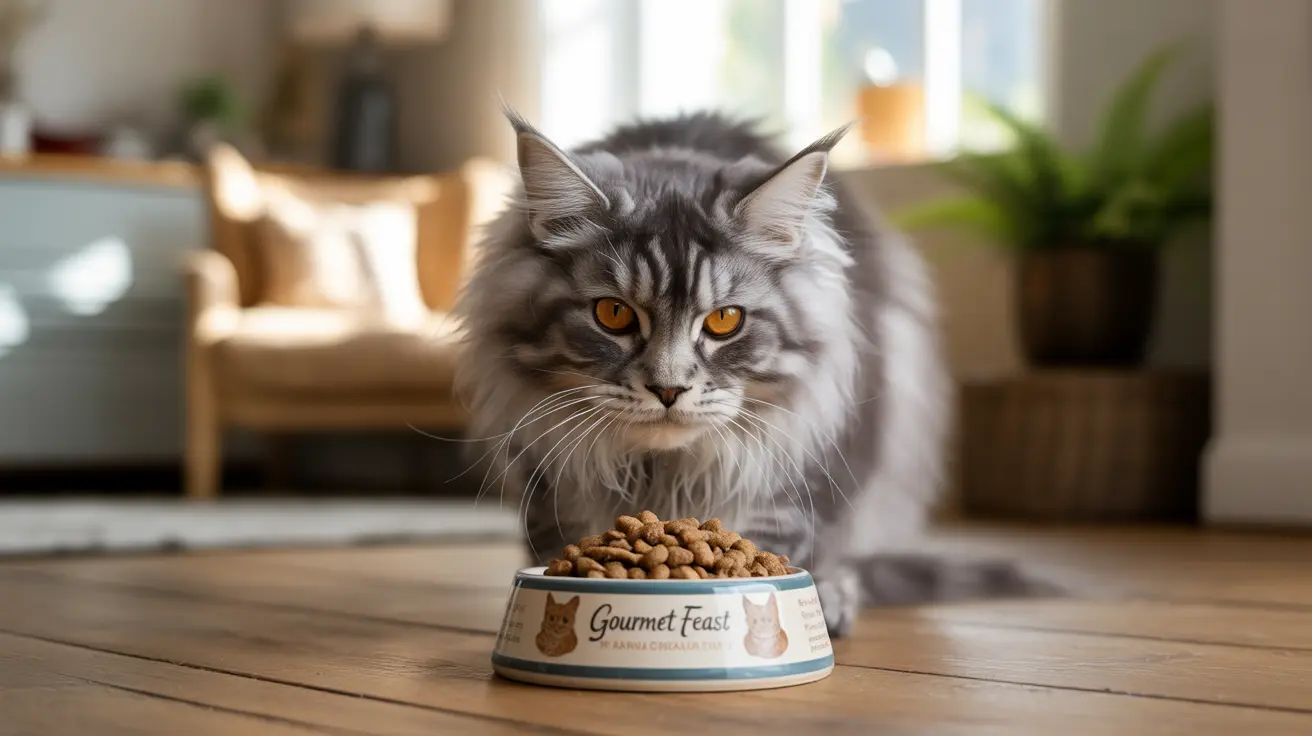Why Cats Get Diarrhea from New Food
Cats have delicate digestive systems that carefully balance gut bacteria to process their regular diet. When new food is introduced suddenly, this balance can be disrupted, leading to gastrointestinal upset. The intestinal microbiome needs time to adjust to different ingredients and nutrient profiles, and any abrupt change can overwhelm this system.
- Different protein sources
- New carbohydrate levels
- Unfamiliar additives or preservatives
- Changes in fiber content
- Varying moisture levels between foods
Signs of Dietary Intolerance
When cats experience digestive issues from food changes, they may exhibit several symptoms beyond diarrhea:
- Increased frequency of bowel movements
- Looser stool consistency
- Vomiting
- Decreased appetite
- Lethargy
- Excessive gas
- Abdominal discomfort
The Safe Way to Change Cat Food
To prevent diarrhea when changing your cat's food, follow this gradual transition schedule over 7-14 days:
Week 1:
- Days 1-2: 75% old food, 25% new food
- Days 3-4: 50% old food, 50% new food
- Days 5-6: 25% old food, 75% new food
- Day 7: 100% new food
For cats with sensitive stomachs, extend this timeline to two weeks, making each transition even more gradual.
Managing Diarrhea During Food Transitions
If your cat develops diarrhea during the food transition, take these immediate steps:
- Slow down the transition process
- Ensure plenty of fresh water is available
- Consider adding a probiotic supplement
- Monitor stool consistency and frequency
- Watch for signs of dehydration
When to Seek Veterinary Care
Contact your veterinarian if you observe:
- Diarrhea lasting more than 48 hours
- Blood in the stool
- Severe lethargy
- Significant decrease in appetite
- Signs of dehydration
- Concurrent vomiting
Frequently Asked Questions
Can changing my cat's food suddenly cause diarrhea?
Yes, sudden changes in cat food can cause diarrhea by disrupting the digestive system's balance. The intestinal bacteria need time to adjust to new ingredients and nutrient profiles.
How long should I take to transition my cat to a new food to prevent diarrhea?
A gradual transition should take 7-14 days, with longer periods recommended for cats with sensitive digestive systems. This allows time for the gut microbiome to adjust properly.
What are the signs that my cat is having digestive problems from a new diet?
Key signs include diarrhea, vomiting, decreased appetite, increased stool frequency, and lethargy. Watch for changes in stool consistency and your cat's energy levels.
How can probiotics help my cat avoid diarrhea during a food change?
Probiotics support healthy gut bacteria populations, helping maintain digestive balance during food transitions. They can reduce the risk and severity of diarrhea during dietary changes.
When should I consult a vet if my cat has diarrhea after switching food?
Consult a veterinarian if diarrhea persists for more than 48 hours, contains blood, or is accompanied by concerning symptoms like severe lethargy or significant appetite loss.
Remember, every cat is unique, and some may require more time to adjust to new food than others. Always prioritize your cat's comfort and health during dietary transitions, and don't hesitate to seek professional advice if you have concerns about their digestive health.






